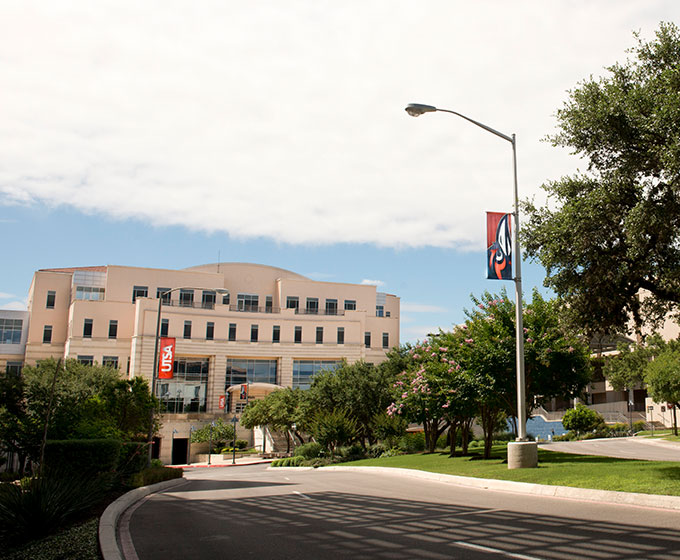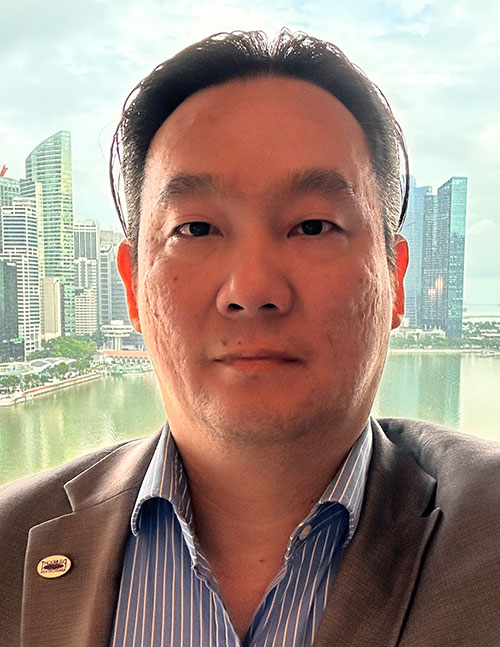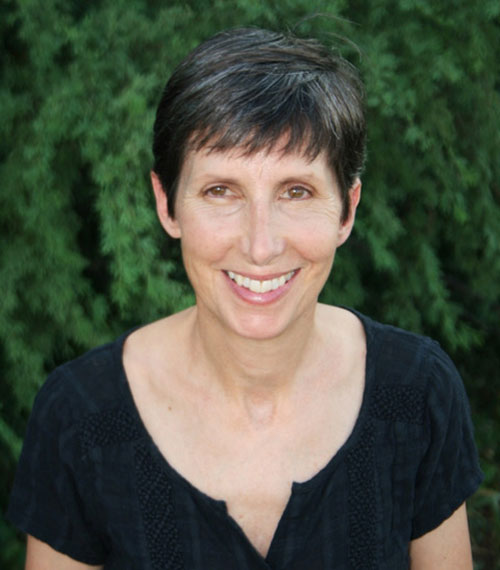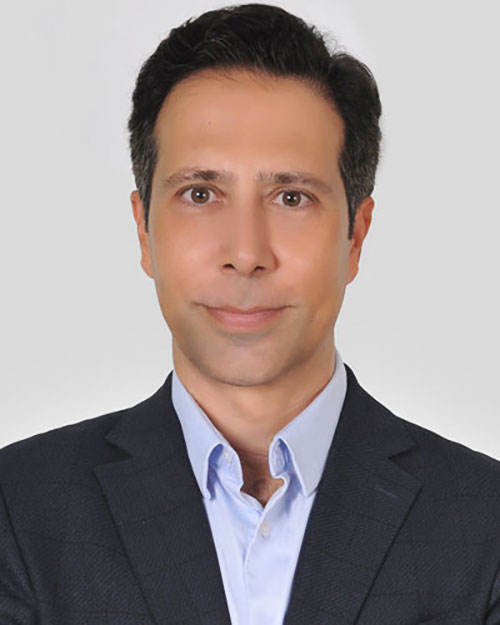
JULY 10, 2025 — Three researchers from UTSA have received a Fulbright Scholar award for the 2025-2026 academic year. Each will travel abroad to advance research in their area of specialization in partnership with their host institution, while also addressing a pressing challenge in their respective region, from critical infrastructure security to biodiversity.
"Having three of our faculty members participate in the Fulbright U.S. Scholar program this year is a phenomenal and well-earned honor, which underscores the rigor and innovation of the UTSA research community," said Jason Yaeger, senior associate dean for research and Fulbright liaison. "I'm proud to congratulate these researchers and look forward to learning about their accomplishments abroad."
As Fulbright liaisons, Yaeger and his colleague, Jenna Gonzalez, provide facilitation between Fulbright and UTSA. They promote Fulbright programs across the university, helping faculty and staff identify which Fulbright programs best align to their research interests. Their counterpart, Drew Chapman, provides support to interested students.
This year’s winners are:
 Kim Kwang (Raymond) Choo
Kim Kwang (Raymond) ChooChoo will participate in the Fulbright Iceland program, working with his host institution, the University of Iceland, to design cyber resilience solutions for real-world problems. He aims to create a framework of data analytical techniques that can be tailored to address critical needs in a range of industries.
“The framework will support the integration, mining and sharing of information securely across complex organizational networks and across an array of tools, while preserving individual and organizational demands for privacy and data protection,” Choo said. “One practical application will be environmental monitoring, which supports societal resilience in the face of adverse weather and natural disasters.”
Choo will work with critical infrastructure providers such as energy and telecommunication companies to understand their unique challenges. The project will culminate in the launch of a Cyber Resilience Collaboration Hub to advance research, education and community engagement in data-driven cyber resilience.
Choo graduated with a Ph.D. in information technology from Queensland University of Technology and has since worked for the Singapore Police Force, the Australian Institute of Criminology and the University of South Australia. He was a Fulbright Visiting Scholar at the Rutgers University School of Criminal Justice and at Palo Alto Research Center in 2009.
 Paula Pebsworth
Paula PebsworthPebsworth will work with students at the University of Venda in South Africa to study and implement effective techniques to protect crops while minimizing harm to wildlife, particularly the chacma baboon. She will teach at her host institution as well as deliver lectures across the country, aiming to "educate, create awareness, promote peaceful human-wildlife coexistence and encourage baboon population estimations throughout South Africa.”
“People often consider baboons a pest species,” Pebsworth said. “They are large-bodied and gregarious, so they can appear overabundant even when they may not be. My aim is to educate people about baboons, their behavior and how to measure their population, and ultimately to implement proven techniques that will ensure the species’ survival.”
Pebsworth is an accomplished international researcher with more than 30 years of experience in animal behavior. She completed her doctoral degree in primatology at Kyoto University, where she studied self-medicative behavior, human-primate interaction, and primate adaptation to anthropogenic disturbance.
 Firat Testik
Firat TestikTestik will collaborate with partners at his host institution, the Budapest University of Technology and Economics, in an initiative to advance understanding of Lake Balaton's hydrodynamics. The findings will contribute to high-fidelity modeling that can aid in water management planning and engineering projects.
“The primary objective of this research is to investigate thermal stratification, circulation and sediment transport in shallow yet large lakes, with a focus on identifying the key drivers for incorporation into modeling efforts,” Testik said. “As a large, shallow lake exposed to diverse meteorological conditions, it serves as a unique natural laboratory for studying hydrodynamic processes."
The project will involve field data collection, analysis and modeling to investigate the complex interplay between factors. Testik will also engage in teaching and outreach activities to foster academic exchange and capacity building through mentorship and student engagement, training future water resources engineers.
Testik is a professor in the UTSA School of Civil and Environmental Engineering, and Construction Management with a joint appointment in the Department of Mechanical Engineering. His research spans a wide array of interdisciplinary topics, including civil, coastal/ocean, mechanical, aerospace, environmental engineering, hydrology, atmospheric science, meteorology and geology.
UTSA has a longstanding commitment to international research and collaboration. The university was named a Fulbright HSI Leader by the U.S. Department of State multiple times.
“Our faculty are advancing global scholarship through their research, teaching and international collaborations,” said Lisa J. Montoya, UTSA vice provost for global initiatives and senior international officer. “Their success as Fulbright Scholars reflects the university’s commitment to fostering global engagement and academic excellence. I am especially grateful to Dr. Jason Yaeger, our lead Fulbright Scholar liaison, for his ongoing leadership and dedication to mentoring colleagues and championing international opportunities that elevate UTSA’s global presence.”
Since its inception in 1946, the Fulbright Program has provided over 400,000 accomplished individuals with opportunities to study, teach and conduct research internationally. The program boasts a distinguished alumni network, including 62 Nobel Laureates, 93 Pulitzer Prize winners, 82 MacArthur Fellows and 44 heads of state or government.
Each year, over 800 individuals teach or conduct research abroad through the Fulbright U.S. Scholar Program.
UTSA Today is produced by University Communications and Marketing, the official news source of The University of Texas at San Antonio. Send your feedback to news@utsa.edu. Keep up-to-date on UTSA news by visiting UTSA Today. Connect with UTSA online at Facebook, Twitter, Youtube and Instagram.
Move In To COLFA is strongly recommended for new students in COLFA. It gives you the chance to learn about the Student Success Center, campus resources and meet new friends!
Academic Classroom: Lecture Hall (MH 2.01.10,) McKinney Humanities BldgWe invite you to join us for Birds Up! Downtown, an exciting welcome back event designed to connect students with the different departments at the Downtown Campus. Students will have the opportunity to learn about some of the departments on campus, gain access to different resources, and collect some giveaways!
Bill Miller PlazaCome and celebrate this year's homecoming at the Downtown Campus with food, games, giveaways, music, and more. We look forward to seeing your Roadrunner Spirit!
Bill Miller PlazaThe University of Texas at San Antonio is dedicated to the advancement of knowledge through research and discovery, teaching and learning, community engagement and public service. As an institution of access and excellence, UTSA embraces multicultural traditions and serves as a center for intellectual and creative resources as well as a catalyst for socioeconomic development and the commercialization of intellectual property - for Texas, the nation and the world.
To be a premier public research university, providing access to educational excellence and preparing citizen leaders for the global environment.
We encourage an environment of dialogue and discovery, where integrity, excellence, respect, collaboration and innovation are fostered.